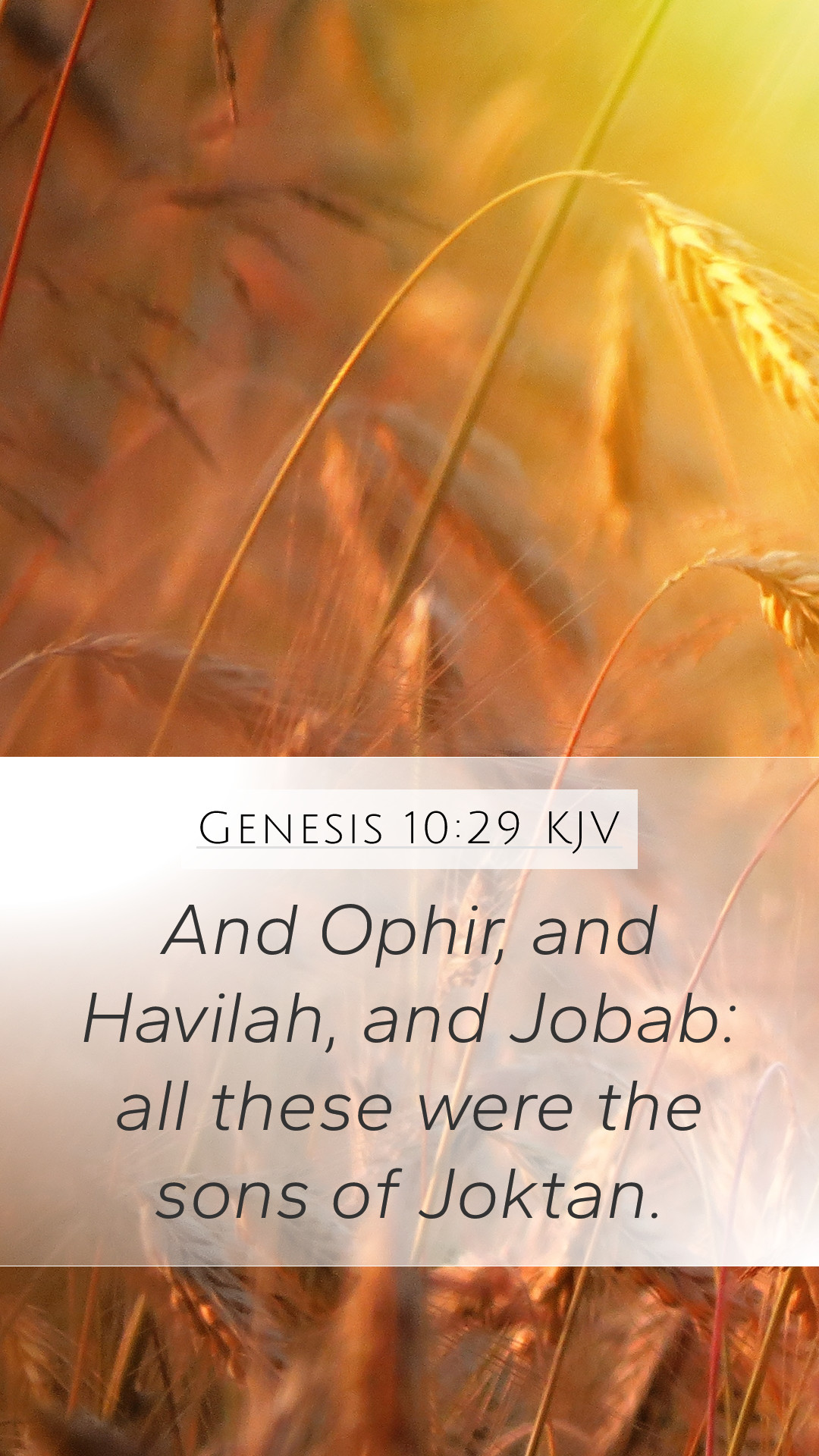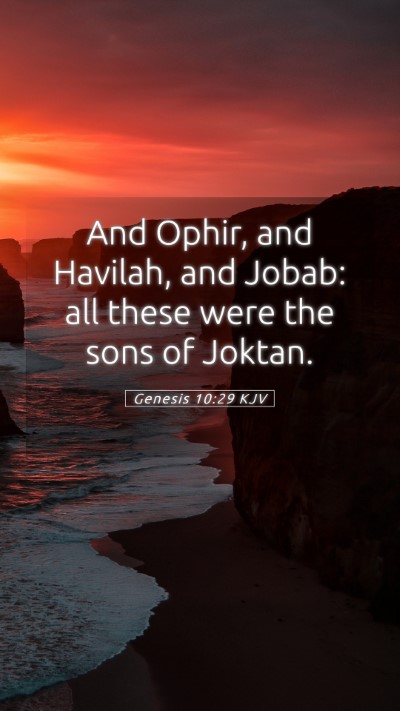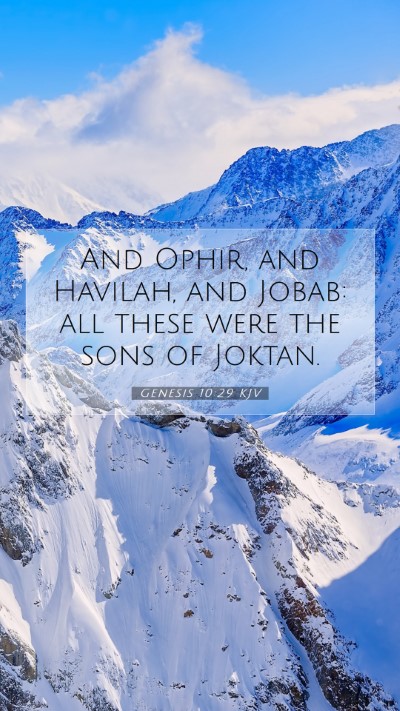Bible Verse Commentary on Genesis 10:29
The verse Genesis 10:29 reads:
"And Ophir, and Havilah, and Jobab: all these were the sons of Joktan."
Overview of Genesis 10:29
This verse is part of a genealogical account in the Book of Genesis, specifically in Chapter 10, which details the descendants of Noah's sons after the flood. Genesis 10 is often referred to as the "Table of Nations" and provides insights into the origin of various peoples and languages.
Bible Verse Meanings
In this verse, the names mentioned, "Ophir," "Havilah," and "Jobab," are significant as they represent different regions and nations that were prominent in the ancient world. Their inclusion in this genealogical listing highlights the expansion and dispersion of nations following the great flood.
Bible Verse Interpretations
Commentaries provide various interpretations of the names listed:
- Ophir: Often associated with a location rich in gold and precious resources (1 Kings 10:22). Commentators suggest it symbolizes wealth and trade.
- Havilah: Some interpretations link Havilah to regions known for spices and precious materials, representing prosperity and trade routes.
- Jobab: Less is known about Jobab, but it may symbolize the lesser-known peoples or nations from Joktan's lineage.
Bible Verse Understanding
The understanding of this verse extends beyond mere names; it reflects the cultural and historical contexts of the descendants of Noah. Each name has implications for understanding the geographical spread of humanity and their interactions in ancient times.
Bible Verse Explanations
Explaining Genesis 10:29 involves examining the historical context:
- Following the flood, the Earth was repopulated by Noah's descendants, establishing various nations.
- This verse indicates the diversity of nations that arise from a single family line, illustrating a divine plan for the spread of humanity across the earth.
- Matthew Henry's commentary emphasizes that these early genealogies set the stage for understanding God's ongoing relationship with humanity.
Scripture Analysis
From a scriptural analysis perspective, Genesis 10:29 serves as a bridge between the story of Noah and the impending narratives about the Tower of Babel (Genesis 11), where the unity of humanity is fractured, leading to a new dispersion.
Historical Context of Genesis 10
The genealogies found in Genesis 10 and Genesis 11 provide a timeline for historical events and show how the various peoples of that time developed their identities and cultures. These verses contribute to biblical exegesis by delineating how God interacted with the world post-flood.
Significance of Genesis 10:29
The significance of the verse can be appreciated through:
- Understanding the lineage of nations and their eventual roles in biblical history.
- Recognizing the abundance of resources and wealth that some nations amassed, which later would lead to economic interactions discussed in later Scriptures.
- Foreshadowing the need for unity and diversity under God's sovereignty.
Application of Genesis 10:29
In applying this verse to daily life, readers can reflect on the importance of recognizing one’s heritage and contribution to a larger community. It encourages a thoughtful approach to the diverse backgrounds that make up humanity today.
Bible Study Insights
For those involved in Bible study groups or seeking Bible study resources, Genesis 10:29 offers a foundational understanding of the nations' beginnings that can lead to deeper discussions on God's creation and His plans for diversity among His people.
Cross References
Related Bible verses that provide further context include:
- Genesis 10:1-5: Establishes the genealogy of Noah’s sons and the dispersion of peoples.
- 1 Kings 10:22: Discusses the wealth of Ophir, linking it to the flourishing trade and resources.
- Genesis 11:1-9: The Tower of Babel narrative illustrates the division of languages and peoples, contextualizing the genealogical account.
Conclusion
Genesis 10:29 is more than just a list of names; it encapsulates the essence of cultural development, identity, and the divine ordination of nations. Understanding this scripture enhances our Bible study insights and enriches our journey in the exploration of God's Word.


